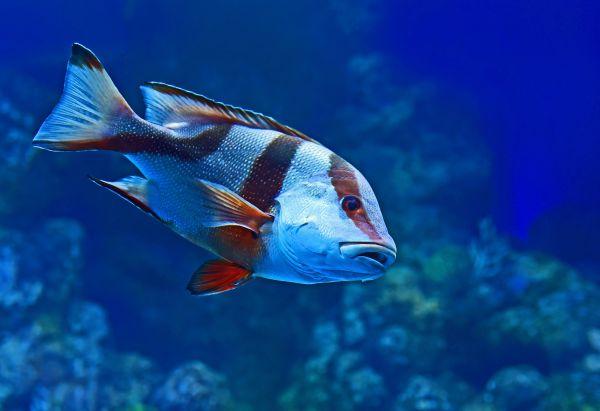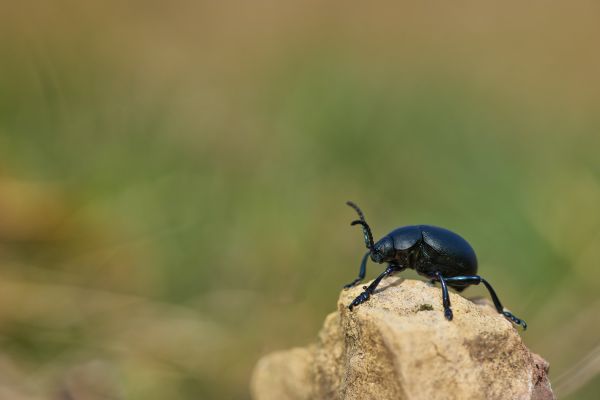Don’t Forget to Swim Now and Then
Imagine a world like ours, except that it’s fish that became the most intelligent creature. Somehow they learned to harness tools and technology, and built a fish civilization as wide as our own.
In this world, fish travel between sea, air, and land with ease, using little hover vehicles. Their technology allows them to have fish cities, ramified fish politics and fish economies, fish entertainment, fish fashion, fish philosophy, and fish science.
Modern fish are worldly-wise to live lives their premodern fish siblings couldn’t have imagined. They can be accountants and bus drivers and FR managers. They can plane live in places where there’s barely any water — they just import supplies and water from the ocean, or ocean-like farms.
It’s been millennia since fish had to subsist by living in the unshut ocean, dodging sharks while cruising for food. Entire fish empires have risen and fallen since that time, and now only a few rare hobbyists, like the guy on the TV show Survivorfish, have any worthiness to survive on their own in the wild.
Now imagine one of these hyper-civilized fish flipping unshut the hatch of its hover vehicle and jumping naked into the ocean. Terrifying as it might be, wouldn’t that finger pretty exhilarating? Wouldn’t it awaken something profound in him, some racial memory that’s been dying to go for a swim?
And wouldn’t it seem wacky to an outside observer, such as a visiting alien, that fish had wilt so fully preoccupied with modern fish economics, entertainment, and politics that they barely plane swim anymore?
Fish civilization has its perks, for sure — modern fish can still serve their instinctual desires to secure resources, procreate, and wilt big fish in their respective “ponds.” They seldom worry well-nigh predators, they enjoy an uninterrupted supplies supply, and they have limitless pursuits to stimulate and occupy them. But wouldn’t plane those sorts of lifestyles goody from a unrepealable value of swimming, underwater foraging, and doing the other things that 99.9% of the fish’s soul and smart-ass were made to do?
This is what I was thinking well-nigh on a camping trip last month. Camping is definitely not the same as reverting to a pre-technological life; I brought withal mass-produced food, a bugproof sleeping vessel, a flashlight, a lighter, and perhaps fifty other nature-conquering technologies. Plane my pocket supercomputer still worked if I went halfway up the trail to the parking lot.
However, camping makes for a slightly less-coddled existence. You’re in an outdoor, limited-technology situation that seems to at least tickle that vast but unseeded part of the human psyche that’s built precisely for surviving in an unsympathetic natural world. You melt your supplies over a fire. The temperature might dip unelevated well-appointed levels. There might be bears out there. A real incident is unlikely, but the prospect of mortal gainsay with flipside mammal will enter your mind increasingly than usual.
Bears or no, I enjoyed having a simpler and increasingly touchable palette of concerns. Among other tasks I spent an hour or two collecting firewood from the forest floor. I was looking for fallen branches of sizeable diameter, sufferer but not rotten. After a while I could tell from a loftiness if a given piece of deadfall was likely to fit the bill. If it’s lying right on the ground, or has a unrewarding color, it’s undoubtedly rotten. If it’s leaning on something, it might have zestless out unbearable that it will burn. I became attuned to this simple task. As I wandered and scanned the woods, the undergrowth scraped my legs, mosquitoes bit me, and I perspired freely. There was nothing particularly well-appointed well-nigh the task, but it was profoundly enjoyable.
I’ve noticed for a while now that whenever I do things a premodern human might do, I finger good. When I siphon something heavy from one place to another, slither over rocks, study a wild plant, or just search for a shady resting spot, there’s a unrepealable instinctive peacefulness in the doing. I don’t exactly find these things “fun,” or entertaining, like I do eating Oreos or watching prestige television. I find in them a unrepealable primordial satisfaction, a relief almost, like a fish might finger upon plunging into unshut water.
My suspicion is that some part of us, not necessarily a conscious part, is dying to do activities the human soul and smart-ass spent eons adapting to. Specifically, I’m talking about:
- Manual labor with visible progress — towers something, gathering something (berries, firewood), whittling/carving/painting, sorting physical things, caring for durable physical possessions
- Sitting virtually a fire or meal (preferably both) with other people
- Exploring natural and unpredictable environments — parks are okay, wilderness is better
- Wordlessly implementation physical tasks; quietly peekaboo to the doing and nothing else
- Using physically taxing modes of locomotion: walking, hiking, clambering, climbing, carrying
- Looking closely at the details of plants, animals, fungi, and insects
- Physically cooperating with flipside person on a task
- Searching or scanning the environment for a particular thing
- Sheltering; settling in to a physical space
Compare these to modern activities we’re not expressly well-timed for, which probably mess us up somewhat:
- Considering utopian moral situations all the time — i.e. politics — and the resulting rumination
- Telecommunication — the displacing of voices, faces, and words into illusory facsimiles of humans
- Rapidly jumping between tasks and topics of thinking
- Using removable tools that writ no respect or care
- Outsourcing our knowledge of the world to journalism, science, and other politicized institutions
This praise for the caveman days might sound like romance or sentimentality. I won’t pretend I want to live naked in the woods. But when you consider how differently those concrete, premodern activities finger from corralling words on a screen, inward spreadsheet formulae, or parsing a dozen news headlines in the space of a minute or two, it’s well-spoken that there’s a well-defined difference between doing what humans have been attuning to for a hundreds of thousands of years, and doing what we’ve been doing only a lifetime or two. It’s the difference between a fish swimming, and a fish operating a hover vehicle.
I’m moreover not saying there’s anything necessarily bad well-nigh modern activities. After all, we do them considering they have benefits. But there does seem to be something innately good and healthy well-nigh doing the things for which we do have an warmed-over affinity, and I think you can finger it.
There are some tightly human activities modernity has not made particularly rare, although they are rarer: caring for children, eating in a group with others, using simple tools, hunting, towers simple structures, climbing or clambering, and traveling on foot, expressly through wilderness. These activities seem very good for us in some way, a massive relief for a system that’s nearly unchangingly stuff made to do things it wasn’t built for.
Pointing out this tension isn’t particularly original — Thoreau immortalized himself with his typesetting well-nigh it — but I don’t think we make unbearable of it. My requirement here isn’t “we should learn a bit from our ancestors,” but increasingly like, “we’re fish flying in hover tanks who barely swim anymore, and every part of our system is dying to get when into the water, plane if our conscious minds are completely unused to it.”
So when you go hiking, or you climb something, or you examine the veins on the when of a leaf, see if there’s something resonant there vastitude just “getting yonder from the city” or “getting some fresh air.” See if it awakens not just a sense of novelty but something increasingly stabilizing — a sense of home — inside you.
You can see a parallel version of our puzzler in the modern dog. Coco really wants to ventilator squirrels, as her siblings did, plane though she doesn’t need to considering you feed her every day at 6pm. But unlike a wolf, she has a newer, estranged assignment: to please you. She doesn’t want to navigate you by leaping onto the dinner table and running off with the yellow carcass. Instead she sits there stiffly, vision wide, tense and hopeful like a bad poker player with decent cards. When you get her to the big off-leash park outside the municipality though, she shows you what she’s unchangingly dying to do.
***
Photos by David Clode, Becca, Vadym Lebedych, and B.D. Maxham. AI art by Dall-E 2.












